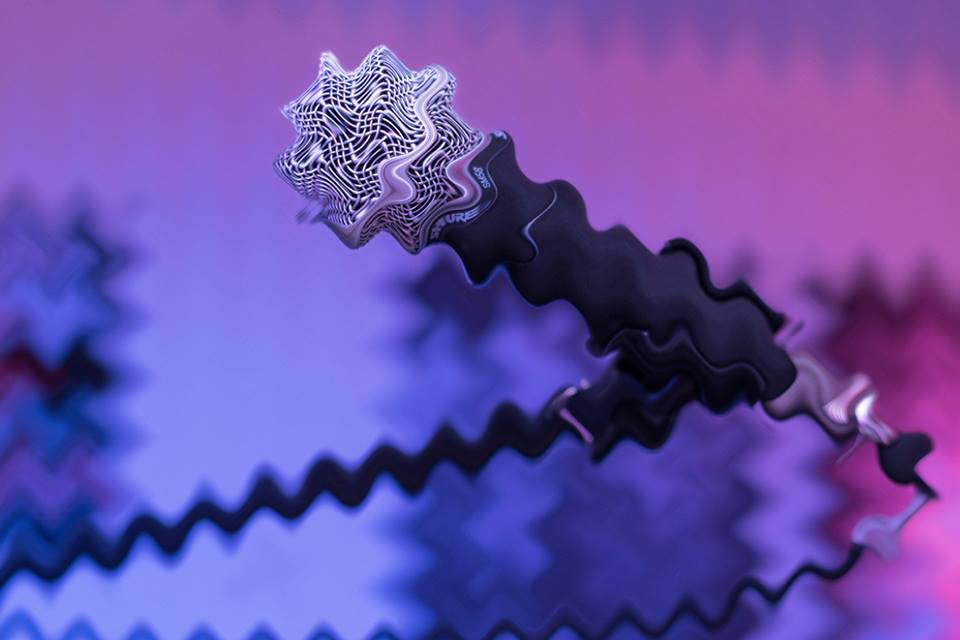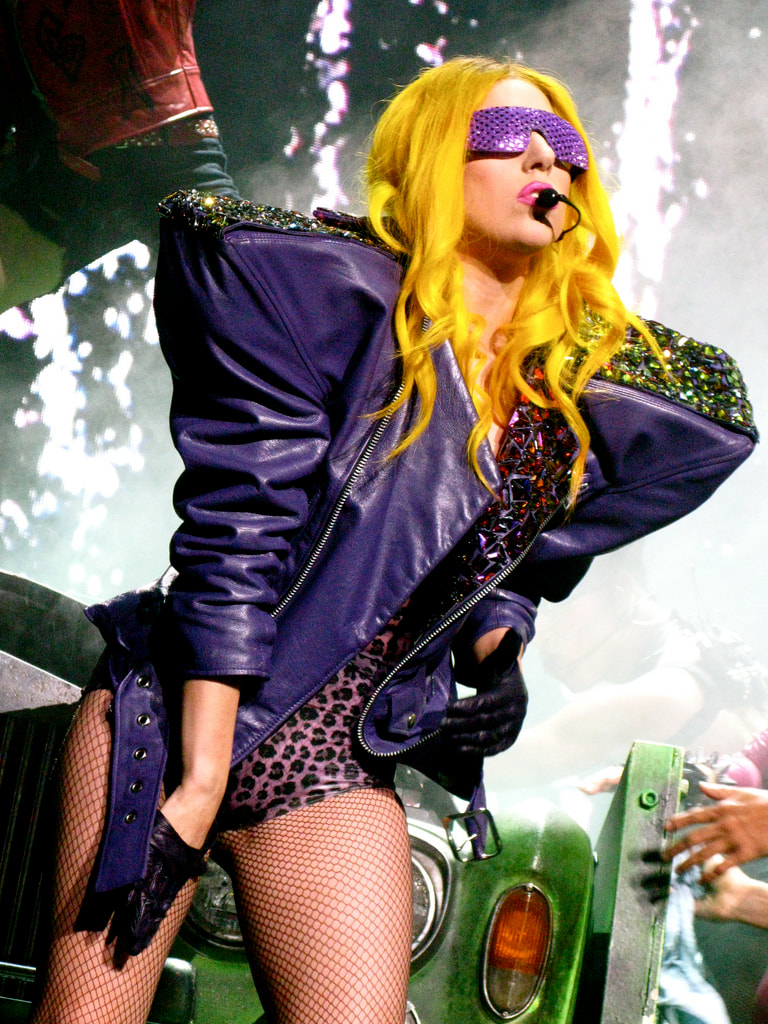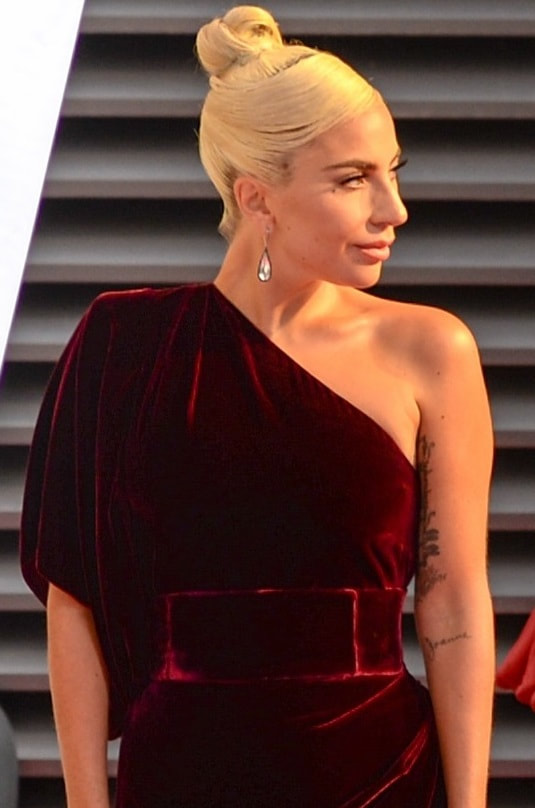|
The Breadcrumbs widget will appear here on the published site.
A Complicated Apology
Lady Gaga’s career first erupted when I was a rising 9th grader. She was the kind of artist that everyone jokingly said they liked (and deep down, very much did) and couldn’t wait to see what crazy thing she would do next.
At first, I’m pretty sure I had a similar reaction to her work as everyone else did: “...huh?”
But that soon turned into me enthusiastically chanting every word to “Poker Face” when it was featured in a casino montage in the first Percy Jackson movie and a dedicated connection to Gaga. I could easily be cast in the “weird kid” archetype, so she grew on me pretty quickly. Reading about how she used to be bullied in school and persevered regardless is something that any of us would crave in a pop star narrative, that weirdness would one day become an asset...not a weakness. From early high school to my blossoming career, Lady Gaga has been an inspiration for me and an artist with a roaring voice, both on the mic and for charitable causes.
I think we all know where this is going, of course. Many people have difficulty seeing their idols as flawed, human beings capable of problematic or even heinous things. Which leads me to both Lady Gaga and R. Kelly. They’re both problematic artists with devoted, cult followings. I never considered myself a “Little Monster” to the degree that many of her fans do - bombarding her New York apartment and every space she occupies, hailing her as a goddess who can do no wrong. As for R. Kelly? All you need to do is look up clips from his world tours to see what kinds of things he and his fans are up to on a regular basis. Spoiler: it’s beyond weird. But before we get there, some background will help. The first time I knew that Kelly had issues was in high school, at least that particular moment in pop culture history where Mr. Robert Kelly was on trial for a certain infamous leaked video. You may be wondering how I could have gone for so long without knowing the problematic history of R. Kelly. Pretty easily, actually. When you grow up jamming to 90’s country and whatever Top 100 hit was on Disney Channel or Nickelodeon, you live in your own self-generated bubble. I never really got into R&B. I knew of “I Believe I Can Fly” from Space Jam, but it wasn’t something that I regularly blasted on my iPod. It was more there as a decoration from childhood. As I expanded my experience with all sorts of music and other media, I started to gather a bit of background on R. Kelly. Keep in mind that this primarily included the episode “Trapped in the Closet” of South Park that parodied his famous song of the same name and “The Trial of R. Kelly” episode of The Boondocks which has recently resurfaced into popularity. The latter is being highly praised for calling out R. Kelly, his cult-like fanbase, and the cultural attitudes that set him free to continue abusing more and more young women and girls. It was Aaron McGruder’s well written and animated masterpiece that tipped me off to that isolated, yet highly disturbing incident of his (you know, along with...everything else). That leads us to the infamous single “Do What U Want” from her 2013 ARTPOP album that has been the center of Gaga’s apology and subsequent removal of it from streaming services. Even when the song came out as a single, it was short-lived, at least on my local radio. Turns out it reached #13 on the Top 100 and #7 on pop charts, so you can see how well I pay attention; however, the song dropped to #58 the following week. I wasn’t a fan of it at first and thought the beginning of it sounded like a metal sheet being jostled in a sewer tunnel. But like the rest of the ARTPOP album, which was a weird and ambitious project of Gaga’s, it grew on me. While playing it again to do some research for this piece, I couldn’t help but snap along to the beat. It’s addictive, alluring, and so was the message of the song as intended by Gaga without the inclusion of R. Kelly: a track which was supposed to represent that people could portray her however they wanted, but that they could never take her mind or spirit. An admirable message - until you get to Kelly’s interlude. Without copy and pasting his entire verse, here is a recap of what Kelly’s contribution to the song entails:
During the final recitation of the chorus, Gaga sings to her haters to “do what they want” while Kelly enthusiastically belts either “what I want” or "when I want" repeatedly in the background. What was marketed as a song about rejecting tabloid reports was now also a song about blatant and predatory sexual conquests, consensual or not. This is further supported by their performances on stage at the American Music Awards and SNL in late 2013. Their performances were compared to Miley Cyrus and Robin Thicke’s with a similarly creepy and overtly sexual theme, skimming on the lines of pornographic for a broadcast of that nature. The unreleased music video was considerably worse, summarized by The Atlantic reporter Spencer Kornhaber as a video “featuring a doctor groping a patient” and further linking a Page Six story that follows the collapse of the music video release. The beginning of the video is said to have Gaga asking her doctor (Kelly) if she will ever walk again. Dr. Kelly tells her yes, under the condition that he can “do whatever [he wants] with [her] body.” And that’s not even the raunchiest part. Yuck. The alternative version of the song, which was speculated to have been released due to the backlash from Kelly’s version, features Christina Aguilera and better supports the supposed main point of the song, talking about the artist’s dedication to her fans and work. Aguilera is now speaking out in support of Gaga, also adding her own reasons for working with her on the song. Gaga’s original justification for working with R. Kelly on the first version of“Do What U Want” was that they “both sometimes have had untrue things written about [them].” But now, Gaga has decided to scrub every trace of the song - both the Kelly and Aguilera version - from streaming services, her VEVO, among other places. On Amazon, there is currently only one physical copy of ARTPOP left. Perhaps a coincidence, but before the single was stripped from existence, the single surged once more on the music charts by a reported 13,270 percent (2,000 downloads) before it disappeared. As you could imagine, between its original release to now, Gaga probably enjoyed a sizable profit. Definitely not as much as she had from Born This Way or previous albums or hits, but still more than the average American sees for certain. The official numbers seem to have never been released, but it was speculated that Gaga had lost $25 million from promoting the album. Either way, both Gaga and R. Kelly have made a chunk of cash from the single, even more so within the past week. Here is the hard part about writing this: as a fan, it is always disappointing to see someone you adore do things that are questionable or downright terrible. Especially since I consider Joanne as one of her best works that unravels her own grief and trauma with universal injustices. It was the album that got me through a really cruddy year that came with the deaths of two family members. It was also something that felt authentic. It was the first time I felt that not Gaga, but Stephani (Gaga’s real name) had recorded an album. Combined with familiar rock and roll sounds from her Born This Way days and country/western vibes, it made me a happy camper. Then there is also the good she has brought with her career. Gaga’s Born This Way Foundation (not to be confused with THIS Born This Way Foundation) she runs in collaboration with her mother has been a refuge for kids and teens struggling with mental illnesses and their sexuality. She has also made appearances in shelters and other places where homeless or otherwise in-need teens go to find an escape. Gaga is an icon for many who have once or currently feel like outcasts, weirdos, and losers. Even so, the time it took Gaga to realize the damage she had done is telling. Sure, I suppose you could argue something along the lines of, “So many other people still worked with him, too. You can’t fully blame Gaga.” This is somewhat true. Many major artists turned down speaking out against Kelly or giving their reasons for working with him on the new Surviving R. Kelly documentary, not just her. Even so, this is precisely why Kelly has been able to explosively thrive. Working with Kelly was pushed as a normal thing simply because of his god-like identity that was maintained by his team and others in the industry, including Gaga. Even more baffling, two years after releasing “Do What U Want”, Gaga admitted to being a victim of sexual assault and wrote the anthem to The Hunting Ground, a documentary that brought campus sexual crimes to light. With this, she was able to come to terms with her PTSD and become an advocate for yet another worthy cause through her triumph. Though many saw this as inconsistent at best. Dr. Roxane Gay, author of bestsellers such as Bad Feminist, Hunger, among many others, dissected the issue through a string of direct and understandably unforgiving tweets back in 2017: “R. Kelly never changes and his community and industry enable him at every turn. When I say industry: I am referring to the labels that sign Kelly, the musicians that play with him, the venues that book him, etc. Fans can't support music that isn't being made, promoted or toured. So the blame starts there.The artists that [collaborate] with him? They should be held accountable. Gaga does a song [with] him then does Til It Happens to You. Really? REALLY?” Though Gaga never addressed Gay’s tweets specifically, it has been enough of an issue to the point where she has recently addressed the entire conundrum with a public apology on her Twitter. The first line reads, “I stand by anyone who has ever been the victim of sexual assault,” going further into detail on an attached picture that looks to be a screenshot from a note writing app: “As a victim of sexual assault myself, I made both the song and video at a dark time in my life, my intention was to create something extremely defiant and provocative because I was angry and still hadn’t processed the trauma that had occurred in my life.”
The note goes on to further explain (quoting her hit “Til It Happens to You”) that she knows how she feel about the matter now and vowed to remove the hit off of every version of the hit from streaming services and to never work with Kelly creatively or otherwise again.
Gaga apologists flocked to the tweet to assure her that she didn’t owe anyone an explanation, to which I strongly disagree. This wasn’t a situation like the one where Gaga decided to take a mental and physical health break from her tour because of her chronic illnesses, specifically fibromyalgia. In that case, though the explanation was highly desired and appreciated, it wasn’t 100% morally necessary to provide - though it did help pacify many fans who bought tickets to her Joanne tour. But working with a man with a destructive legacy? That needs more than just silence - especially not just any old “sorry” tweet. Plenty of fans will try to divert attention from Gaga to call out other artists for working with him in the past (and have). They’ll also desperately point out all of the good Gaga has contributed to society through her music and charity work, becoming vicious attack dogs on behalf of her honor. In reality, what everyone must face is that doing nice things does not negate the bad that has been done. Though we often quantify a person’s morality with the number of good versus bad things they do, it doesn’t mean much until they address glaring mistakes of their past. In Gaga’s case, creating “Til It Happens To You” was an impressive and monumental feat, but not one that could ever excuse working alongside a well-documented predator. But what keeps so many people flocking towards R. Kelly both professionally and as a fan? For musicians, Kelly’s undeniable record of chart-toppers is certainly a draw. For many others, Kelly’s voice is a siren song; its inescapable appeal is an addiction, the kind of voice that would have you leap off of a ship and swim to your doom. In this case, it lured many vulnerable women to lifelong abuse and trauma. While sirens are mythical, unstoppable creatures created by our imaginations, R. Kelly is a monster grown and adored by millions, still enabled and fed to this day. Society has long given him the green light to be a wrecking ball of mental and physical health. Even before “Surviving R. Kelly”, interviews of his victims had been long-surfaced, including one with his ex-wife Drea Kelly on ABC’s Nightline. Formally a backup dancer and choreographer for the artist, a younger Drea was eventually courted by Kelly. Their marriage lasted for 13 years before finally collapsing. According to the former Mrs. Kelly, the charismatic R. Kelly was a different man from the narcissistic Robert Kelly. “People have no idea about the bruises I’m hiding,” said Drea. For the rest of the interview, she paints her once frightening reality: being ordered to sleep in the bathtub, being beaten, among other heinous things. His three children rejected him on camera - they are relatives who would typically have much stronger loyalties to him, but see him as a burden than a legacy. In response to what they would say to their absent father, the oldest son looked in the camera and gave a curt and sassy “bye” before giggling with the rest of his family. They are able to see Mr. Kelly for what he really is: a narcissistic beast. The same cannot be said of his fanbase, who would gladly walk off the edge of a cliff with him given the chance. Or at least they would flock to America with him, as seen in an eerie performance back in 2011. During a New Year’s performance in Ethiopia, he sings a supposedly impromptu invitation to anyone willing to take the next step with him to a plane back to America. In the clip, Kelly sings an enchanting, Disney-like song to his adoring Ethiopian fans, presumably to find new and willing victims - if they have a passport and their vaccinations. If it weren’t indicative of his insidious behavior, I’d probably laugh hysterically at the clip for a little longer than I did. The video has just now gone viral, featured on big YouTube channels such as penguinz0 and Chris D’elia’s account for its absurdity. In a similar way, Gaga’s own daring and absurd acts have helped her develop a faithful herd of followers who would defend her at every wrongdoing. But in my perspective, the most powerful version of Gaga was the one who belted her heart out in Joanne who had grown as an artist while stripping away a lot of gimmicks that kept her relevant in the tabloids. She had grown so much due to her stardom as a figure that marketed herself as alien like and inhuman, feeding the false narrative of a flawless, perfect pop star that her fans helped to create. With that said, I am glad Gaga has taken steps to admitting her wrongdoings and has recognized the cognitive path that led her to do so while also respecting those who cannot reconcile with the singer. Confessing her flaws drains away the idolatrous image that has been crafted of Gaga to remind everyone that she is ultimately still Stephani, a human that can be tempted by a society around herself to fit in, to make terrible decisions. I hope her apology has further, introspective steps to begin to repair the damage done by her actions that includes a vow to never endorse a predator or a system that allows for them to grow and exist - something we all could embrace.
1 Comment
Comments
Layla
1/14/2019 07:58:23 am
I totally agree with you! I'm glad Gaga apologized. Still, R. Kelly shouldn't be allowed to thrive in the music industry. I wish more celebrities and industry people would stop giving him a platform. Thanks for writing this!
Reply
Your comment will be posted after it is approved.
Leave a Reply. |
AuthorWrite something about yourself. No need to be fancy, just an overview. Archives
July 2024
Categories
All
|





 RSS Feed
RSS Feed






